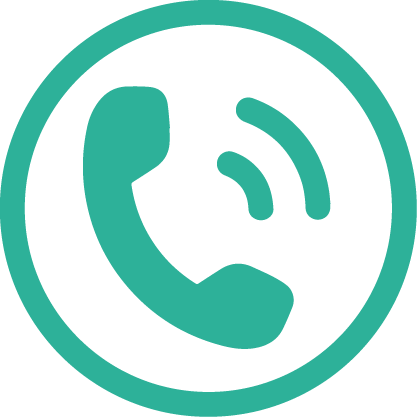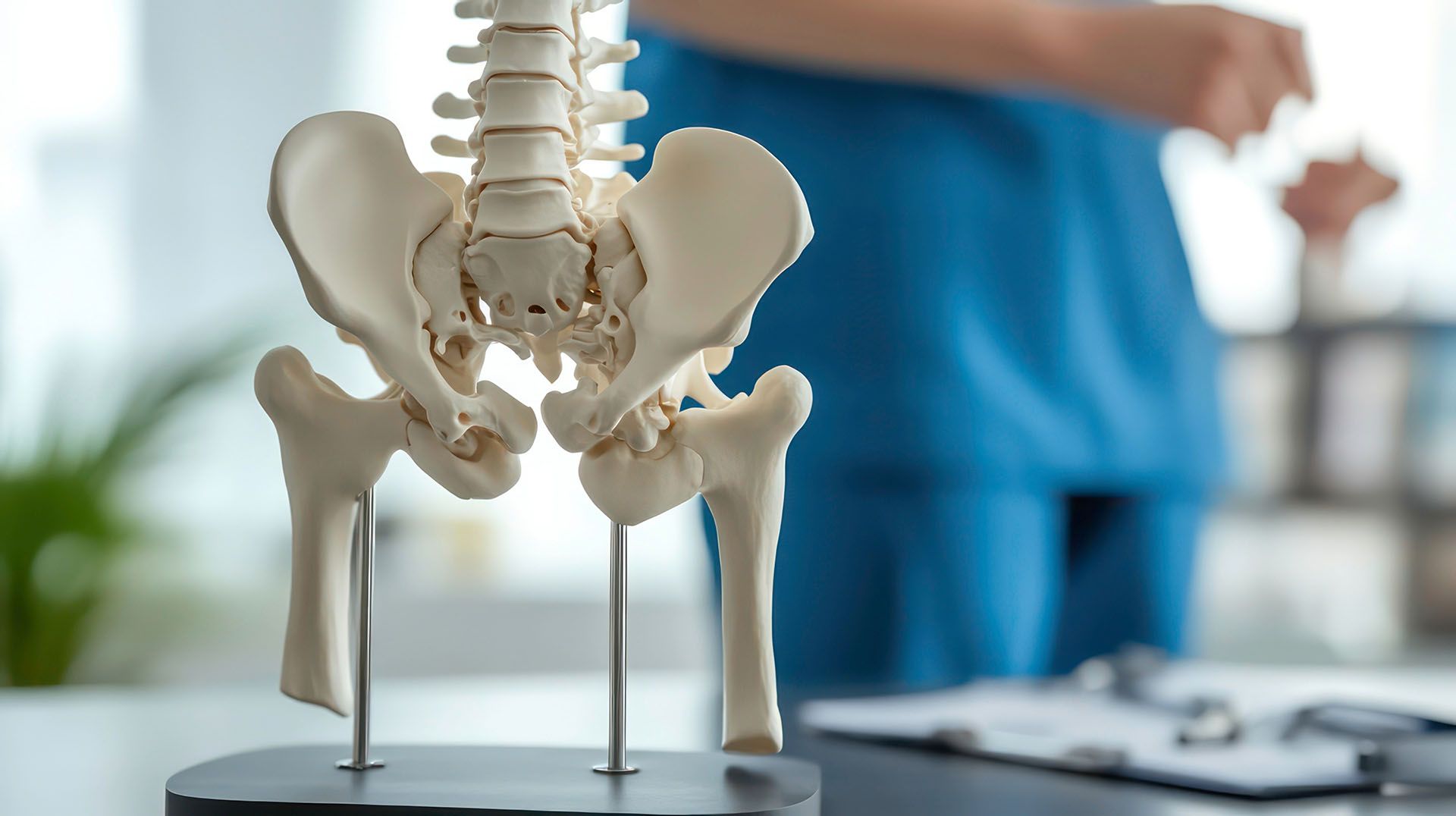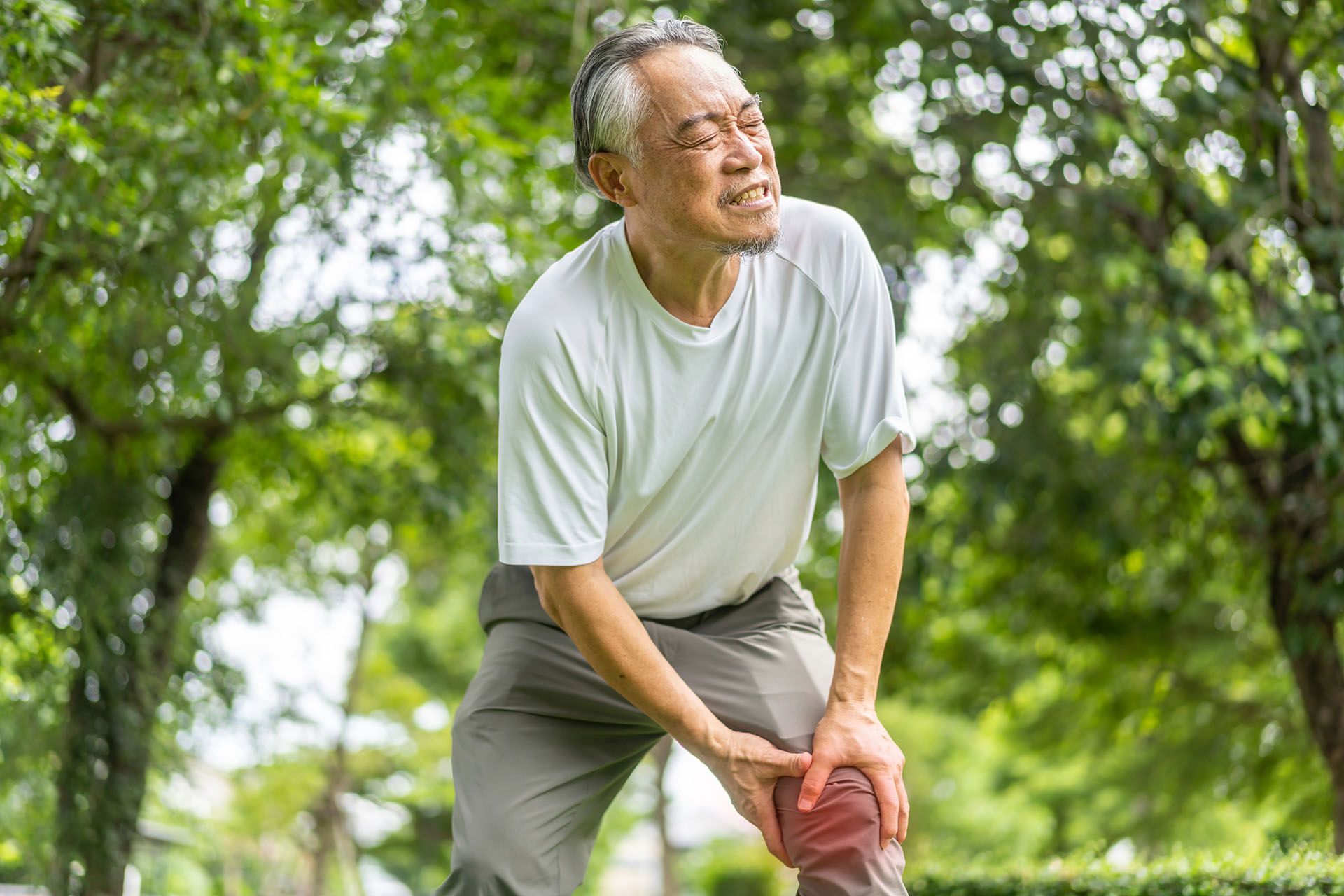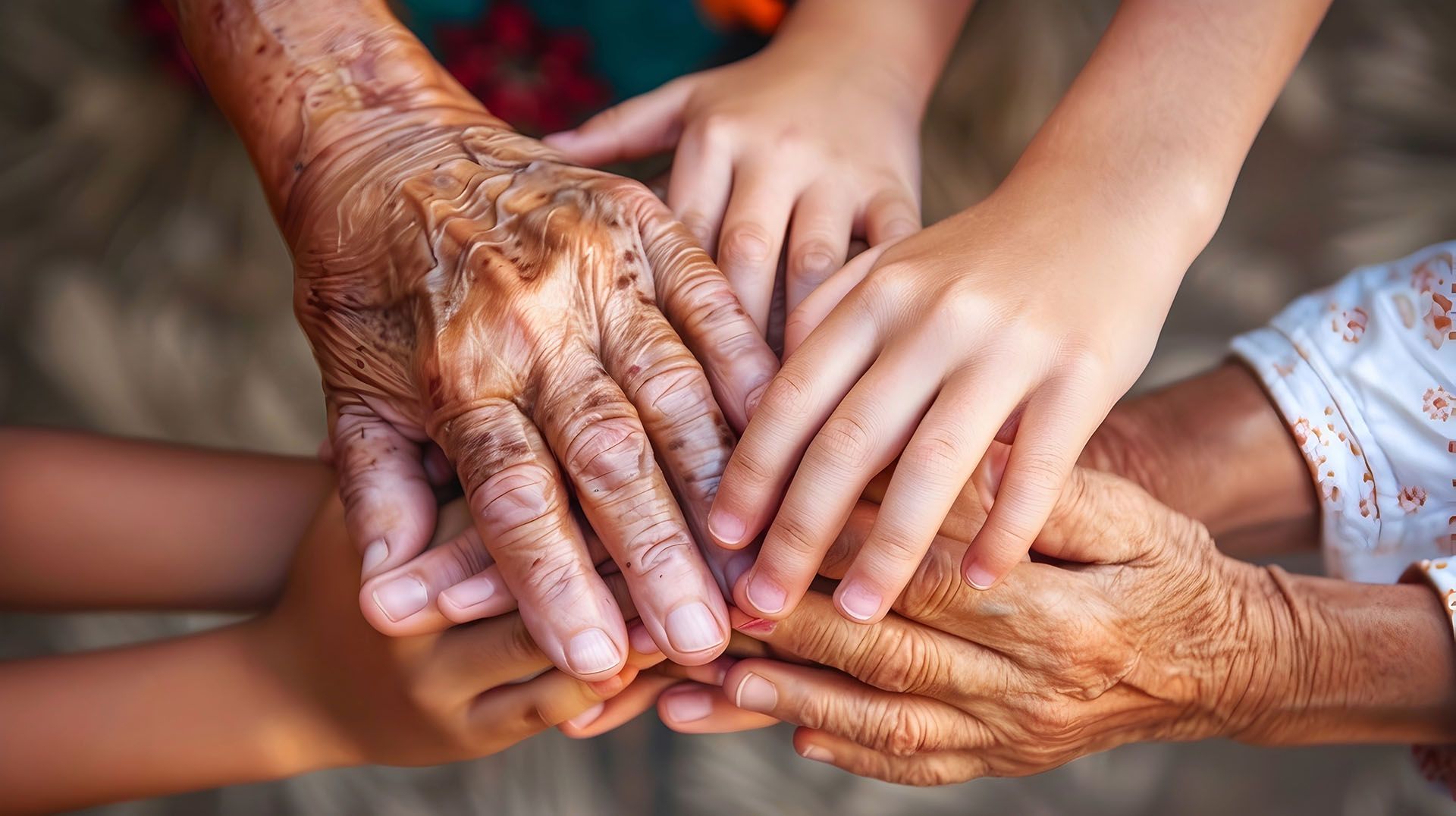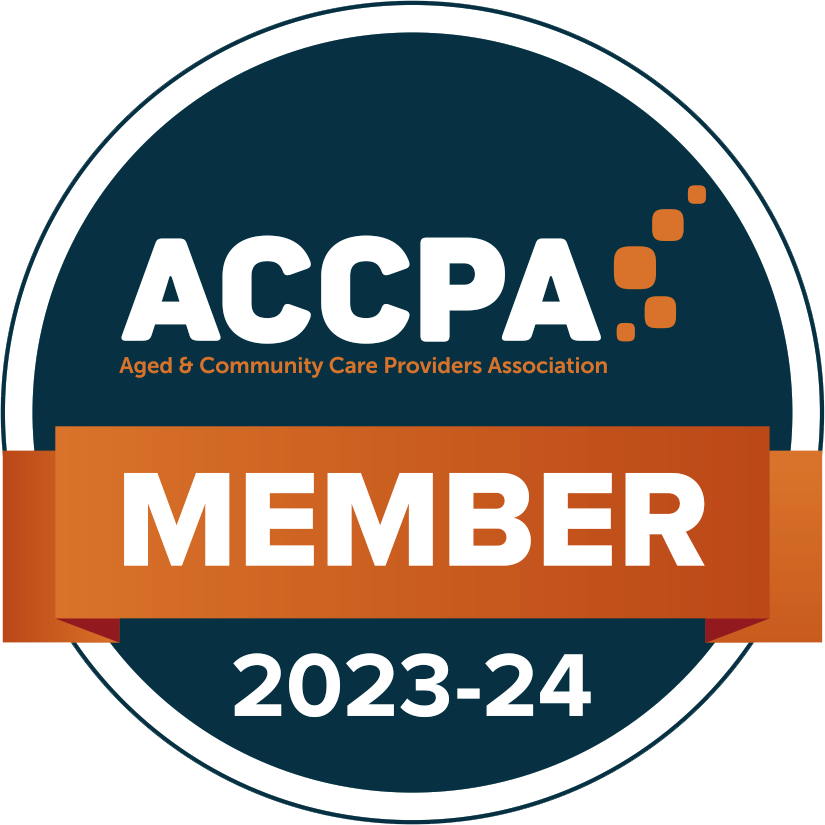Any Questions?
Effective Falls Prevention Strategies in Aged Care: Promoting Senior Safety
Falls are a major concern in aged care, posing significant risks to the health and independence of seniors. Fortunately, many falls can be prevented with the right strategies in place. In this blog, we’ll dive into practical ways to prevent falls, including simple lifestyle changes, home safety modifications, and the latest equipment and technology designed to enhance safety.
We will also look at the support available through the Commonwealth Home Support Programme (CHSP) and Home Care Packages (HCP), covering services and funding options that can assist with implementing these strategies. Whether you're seeking ways to enhance fall prevention at home or within a care facility, this guide offers valuable insights to keep your senior loved ones safe.
Common Risk Factors Contributing to Falls
Older adults are at higher risk of falls due to decreased bone density, muscle strength, and balance. However, apart from these, here are some common risk factors that contribute to this increased risk.
Muscle Weakness
As seniors age, their muscles become weaker due to reduced muscle mass. This happens particularly in the legs and core, which as a result, impairs balance and stability.
Balance and Coordination Issues
Conditions that affect balance and coordination, such as vertigo or neurological disorders, increase the risk of falls.
Chronic Health Conditions
Other diseases like osteoporosis, arthritis, diabetes, and cardiovascular conditions that involve complex interactions between physical limitations and systemic effects can contribute to falls.
Medications
Certain medications, especially those that cause dizziness, drowsiness, or affect blood pressure, can significantly increase the risk of falls.
Vision Impairments
Poor vision or eye conditions, such as cataracts or macular degeneration, can hinder depth perception and spatial awareness.
Cognitive Impairments
Conditions that affect cognitive function, such as dementia or delirium, can lead to unsafe behavior and increased fall risk.
Environmental Factors
Home hazards like uneven flooring, clutter, poor lighting, and slippery surfaces can contribute to falls by creating unsafe conditions that increase the likelihood of tripping or losing balance.
Strategies to Prevent Falls Among Older Adults
Falls are a significant concern for older adults in Australia, highlighting the need for effective falls prevention strategies in aged care.
Home Safety Modifications
- Use handrails on stairs and secure loose floorboards or carpets.
- Install grab bars in the bathroom near the toilet and in the shower or bathtub.
- Use non-slip mats in the bathtub, shower or other areas at high risk of falls.
- Make sure that all rooms are well-lit. If not, install night lights in hallways and bathrooms.
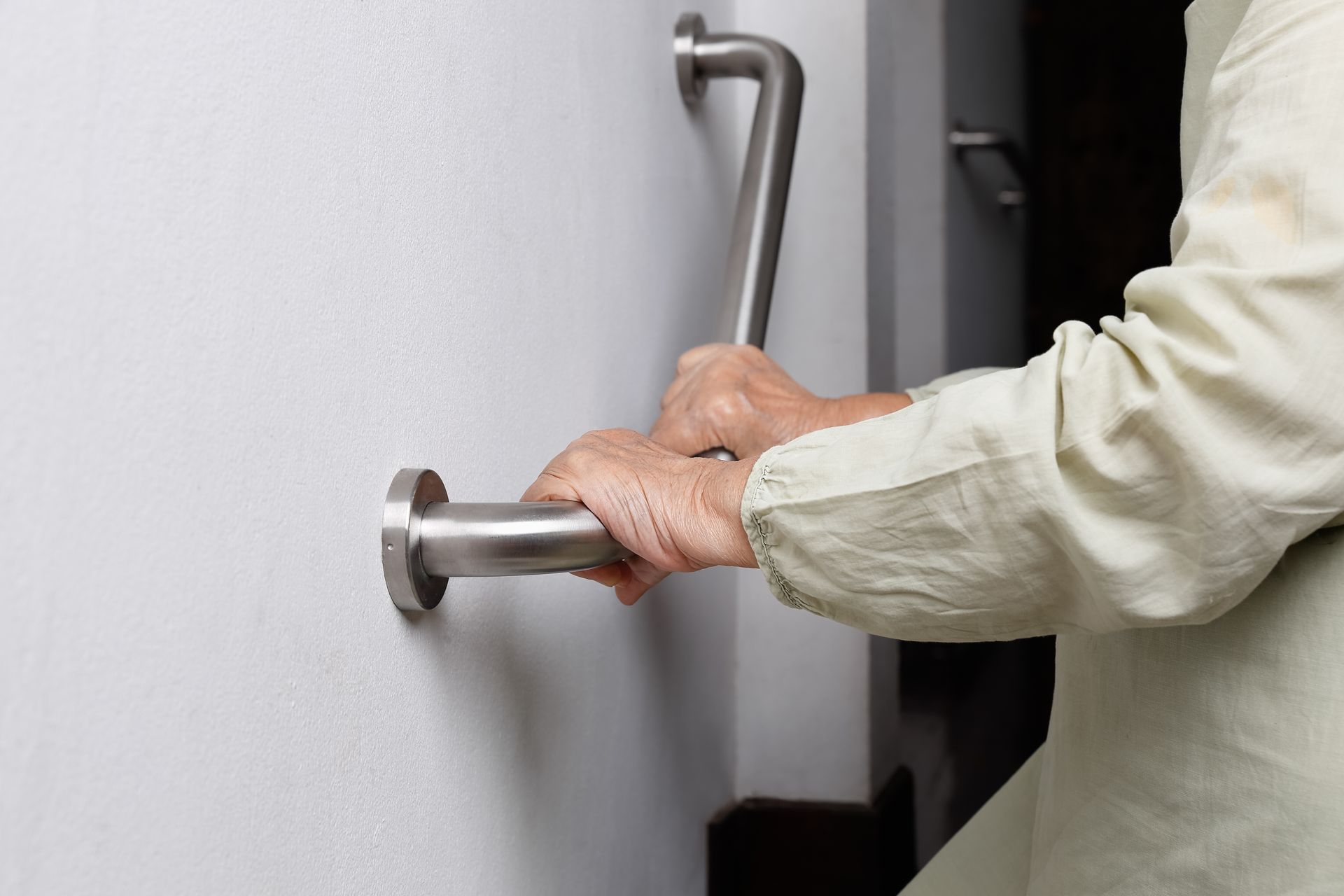
Remove Clutter
- Remove clutter, such as loose rugs and electrical cords, that could cause tripping.
- Keep frequently used items within easy reach to avoid reaching or bending.
Regular Exercise
- Engage in balance and strength training exercises to improve stability.
- Incorporate walking or other low-impact aerobic activities to enhance overall fitness.
- Perform flexibility exercises to maintain joint mobility and prevent stiffness.
Medication Review
If your loved one is taking medications, make sure that they are reviewed by a healthcare provider to identify if they are causing dizziness or balance issues. Hence, discuss alternative medications or adjustments to minimise side effects.
Health Check-Ups and Examinations
Make sure to schedule regular health check-ups such as eye and hearing exams to address chronic conditions and impairments that could impact balance.
Mobility Aids and Assistive Devices
Aside from maintaining safe living environments, educating loved ones and caregivers about fall prevention strategies and proper use of assistive devices is crucial. Wearing well-fitting, non-slip shoes can help prevent slips and fall-related injuries, while recommended mobility aids and assistive devices offer added protection.
Health and Nutrition
Maintain a diet rich in calcium and vitamin D to support bone health and overall bone strength. Monitor and manage health conditions, such as osteoporosis and diabetes, that can affect balance and coordination.
Innovative Equipment and Technology for Fall Prevention
Make sure that family members or caregivers know how to respond to falls and provide support. This can be done by installing personal emergency response systems or alarms to get help quickly if a fall occurs. Here are some types of equipment and assistive technology that can guarantee help is always within reach.
Assistive Devices
Assistive devices are designed to help prevent falls and enhance safety for individuals, particularly those who are at higher risk due to age, health conditions, or mobility issues. Here are some common examples:
Grab Bars/Handrails
Grab bars are typically installed in bathrooms and other high-risk areas to provide support and stability when standing or moving. On the other hand, handrails are placed along stairways and corridors to help individuals in maintaining balance while walking or climbing stairs.
Walker/Walking Cane
Walkers and walking canes are mobility aids that provides stability and support for individuals who need assistance with walking. These can be used by individuals with leg or torso weakness, a serious injury, discomfort, or pain that can increase fall risk.
Elevated Toilet Seats
Elevated toilet seats are more commonly used by those with mobility issues. They are designed to make sitting and standing easier, reducing the risk of falls in the bathroom.
Stair Lifts
Stair lifts or known as motorised chairs are widely used to improve accessibility and safety for people with disabilities, elderly individuals, those recovering from surgery or illness, or basically individuals at risk of falls on stairs.
Medical Alert System or Personal Emergency Response Systems (PERS)
Medical alert systems or fall detection devices are primarily designed for emergency situations, providing immediate assistance when the wearer is in distress. These systems typically include a wearable device, such as a pendant or bracelet, which, when activated or pressed, enables quick contact with emergency support or caregivers.
Advanced Home Monitoring Systems
Includes motion-activated lighting, smart sensors, and automated systems that can assist caregivers if a fall is detected.
Smart Cameras
Smart cameras with AI technology can analyse movement patterns and detect unusual activity are commonly used to send alerts if a fall is suspected.
Motion Sensors
Motion sensors are commonly placed throughout the home to monitor movement and detect falls or potential hazards, triggering alerts if necessary.
Voice-Activated Systems
Voice activated systems allow users to control lights, doors, and other home features through voice commands, reducing the need for physical movement and minimizing fall risks.
Automated Lighting
Motion-activated lighting systems that illuminate paths automatically are useful in reducing the risk of tripping in poorly lit areas.
Telehealth and Remote Monitoring
Some telehealth platforms and remote monitoring devices are designed to track vital signs and physical activity levels, alerting caregivers and healthcare providers to potential issues that could increase the risk of falls.
How the CHSP and HCP Programme Can Help With Fall Prevention
The Commonwealth Home Support Programme (CHSP) and Home Care Packages (HCP) are Australian government-funded programs that help older adults and those with disabilities maintain independence at home. Both offer services that aid in fall prevention. Here’s how each can assist:
1. Home Modifications and Equipment
CHSP
Provides minor home safety modifications, such as installing grab rails, non-slip flooring, and ramps to enhance safety and reduce fall risks.
HCP
Offers more extensive home modifications and access to specialised equipment, such as shower chairs, raised toilet seats, and bed rails, tailored to the individual’s needs.
2. In-Home or Domestic Assistance
CHSP
Offers assistance with household tasks, reducing the need for individuals to engage in potentially hazardous activities like climbing ladders or reaching high shelves.
HCP
Provides comprehensive in-home support, including mobility assistance and personal care, making sure that individuals have help with daily tasks that could otherwise pose fall risks.
3. Personal Care and Mobility Assistance
CHSP
Provides basic personal care services that may include dressing, bathing, and other activities that can reduce the likelihood of falls.
HCP
Provides comprehensive in-home support, including mobility assistance and personal care, making sure that individuals have help with daily tasks that could otherwise pose fall risks.
4. Access to Allied Health Services
CHSP
Facilitates access to allied health services such as physiotherapy and occupational therapy, which can offer assessments and recommendations to improve balance, strength, and overall mobility.
HCP
Includes broader access to allied health professionals who can develop personalised fall prevention plans, conduct regular assessments, and provide ongoing therapy to improve stability.
5. Exercise and Balance Programs
CHSP
Supports participation in group exercise and balance programs specifically designed to reduce the risk of falls among older adults.
HCP
Allows for individualised exercise programs guided by health professionals, focusing on building strength, improving coordination, and enhancing confidence in mobility.
6. Technology and Emergency Support Systems
CHSP
Can provide basic access to personal alarms and other emergency support systems, helping individuals get immediate assistance in the event of a fall.
HCP
Offers more advanced technological solutions, such as wearable fall detection devices and smart home monitoring systems, which can provide continuous oversight and quick response if a fall occurs.
Takeaway
Fall prevention strategies are crucial for promoting safety and enhancing the quality of life for seniors in aged care. By adopting practical measures, utilising advanced equipment and technology, we can significantly reduce the risk of falls. Furthermore, leveraging support from programs like the Commonwealth Home Support Programme (CHSP) and Home Care Packages (HCP) offers valuable resources and funding to help put these strategies into action.
At Focus Connect, we offer extensive Commonwealth Home Support Programme (CHSP) and Home Care Package services to help your elderly loved ones at risk of falls live independently at home while staying connected and secure within their community. Our team provides personalised assessments and tailored interventions to address each individual's unique needs.
Get in touch with us today to learn more about our services.
Related Articles
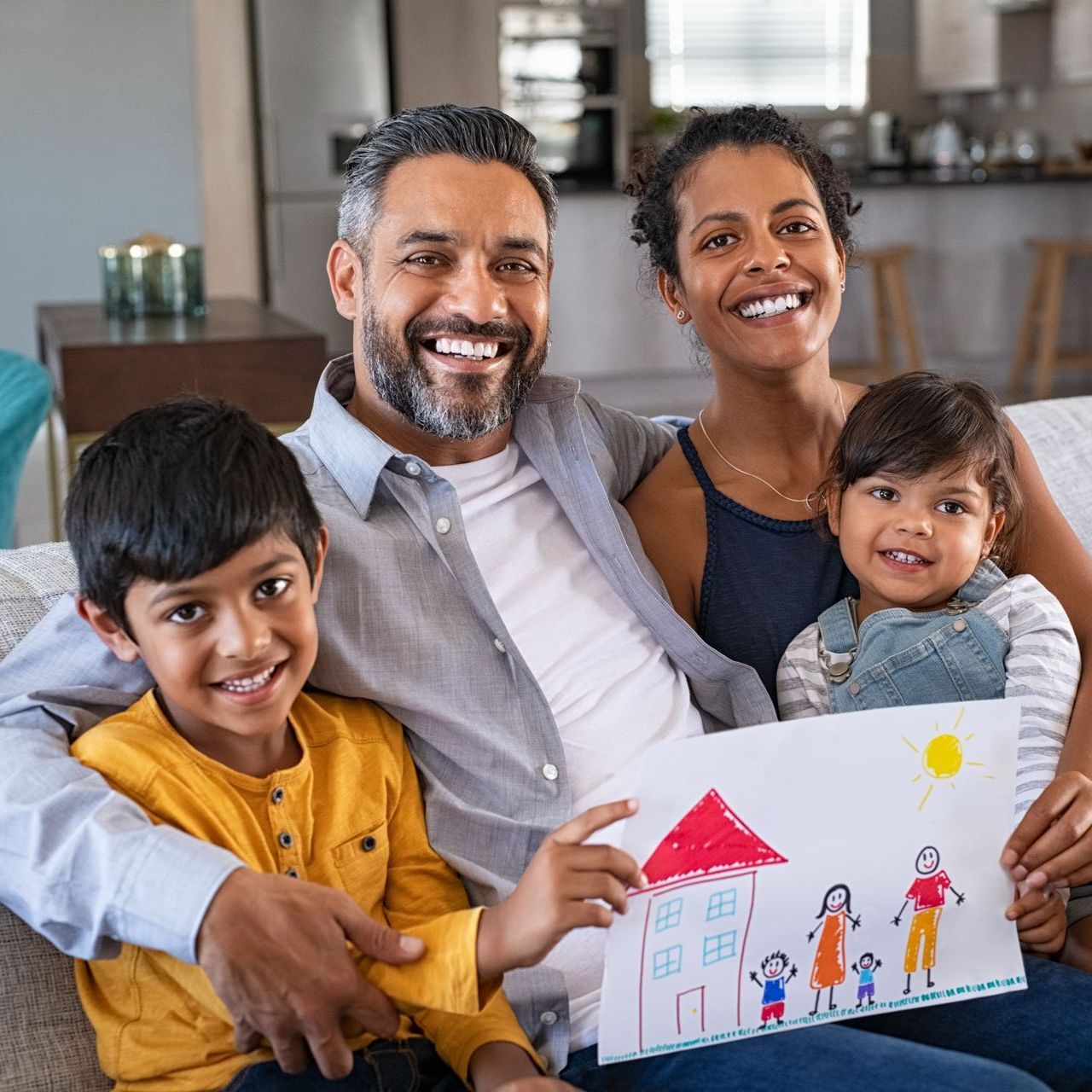
FOCUS Connect, a registered not-for-profit charity, provides practical assistance and support services to disadvantaged and marginalised individuals. As a My Aged Care provider, we offer Home Care Package and Commonwealth Home Support Programme services across South West and Northern Sydney. Additionally, we are a leading provider of community services to multicultural and culturally and linguistically diverse (CALD) populations across South West Sydney.
Need Support or Know Someone Who Does?
If you need support, call us at 02 4627 1188 or contact us via our online enquiry form, and we will get back to you shortly to discuss your needs and how we can assist you. If you know someone who could benefit from our services, refer them to FOCUS Connect to help them receive the support they need and deserve.

